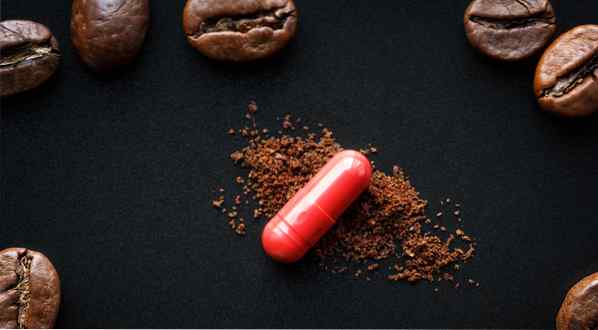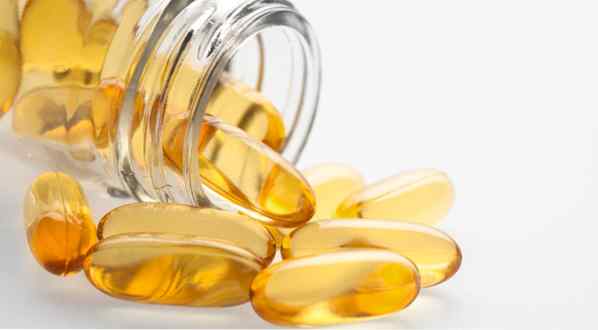
Nootropics Can Supplements Actually Boost Brainpower?

You know about the supplements that can make you bigger, faster, and stronger. But what about ones that can make you smarter and sharper?
They're called nootropics-also known as smart drugs-and they include vitamins, herbs, prescription pills, and foods all intended to enhance brain function. Some you'll recognize: coffee, Adderall, and MCT oil. But others-Cordyceps to improve alertness; acetyl-L-carnitine for better memory and learning; Rhodiola rosea for better mood and cognitive processing-you're probably less familiar with.
Some people reach for them preemptively to protect their brains over the long haul, keeping them neurologically nimble into old age. But most are stacking supplements to make their brains work better now-to improve focus, sharpen memory, speed up processing and recall, and increase learning retention, says Cady Block, Ph.D., a neuropsychologist at the Ohio State University Wexner Medical Center.
In 2017, nearly 30 percent of Americans admitted to using pharmacological cognitive enhancements (PCE) at least once in the past year. This number is up 20 percent from 2015, according to the Global Drug Survey published in the International Journal of Drug Policy. Adderall and Ritalin (prescribed to improve focus) were the most recognizable names from the study, but drugs like modafinil (sold under the brand name Provigil and prescribed to improve alertness) were also referenced among the most popular choices.

11 Best Supplements for Building Muscle Mass
Get the best bulk-building supplements for cheap.
Read articleThis all sounds great, right? Unfortunately, there isn't a whole lot of evidence to show nootropics actually boost your brainpower.
“Nootropics research is plagued by small sample sizes and a lack of an adequate control sample,” Block says. Add in the fact that dietary supplements aren't well-regulated by the FDA and that most people are buying their smart drugs online, and we're left without a solid sense of what's really in a supplement blend or the quality (and safety) of the ingredients.
Some studies actually disprove nootropics, especially the over-the-counter variety: A 2015 study review found the purported brain boosters omega-3 fatty acids, B vitamins, and vitamin E all had no effect on cognition. And another study last year in the Journal of the International Society of Sports Nutrition reported soldiers saw no improvements in their marks-manship or reaction time after 31 days of taking a popular nootropics blend that included Bacopa monniera and Huperzia serrata (both thought to improve memory) and oat straw (thought to reduce stress).
Right now, we don't know which nootropics actually help improve attention, focus, and energy-but we do know more sleep and exercise do.
Not surprisingly, skimping on sleep makes you less able to pay attention and more mentally exhausted. And it's cyclical: Using your brain makes you more tired but keeps you from being able to fall asleep, but not getting enough restorative sleep then makes your brain more sluggish. Meanwhile, studies have shown a quick nap can boost learning, memory, and creative problem-solving.
As for exercise, regular moderate to vigorous workouts reduce your risk of age-related cognitive decline and improve your memory and behavior control, says a 2016 study in Medicine & Science in Sports & Exercise. And new research reports just a single light to moderate workout improves brain connectivity and cognition. That's because getting your heart rate up not only increases blood flow and oxygen to your brain but also actually changes gene expression and increases the size of the hippocampus, the part of the brain responsible for verbal memory and learning.
Here's what else you should know about nootropics, and four that you should become familiar with:

10 Great Foods to Pump Up Your Brain
Feed your brain like you feed your muscles, and create a whole new definition to total body training…
Read article1 of 7

vectorfusionart / Shutterstock
How Smart Drugs Work
Countless types of nootropics means countless mechanisms. Some play on how your brain sends and receives chemical and electrical signals, while others are far more simplistic: Certain substances, like caffeine, increase cerebral blood flow; more blood means more oxygen coming to your brain tissue and more cellular waste being carried out, so your brain increases in efficiency.
Meanwhile, some herbs and vitamins help protect your mitochondria against damage from inflammation and oxidative stress so they can produce the main energy currency in the body, ATP. “Anytime you use your brain-to focus on a task, to form a new memory-you need ATP to fuel the process,” says Ai-Ling Lin, Ph.D., assistant professor of pharmacology and nutritional sciences at the University of Kentucky.
Nootropics aren't necessarily delivering something new to our brains-they're often just allowing us to produce the energy and signals our brains need to fire optimally.
2 of 7

Richard Newstead / Getty
The Vitamin Variability
Don't pass on the pills just yet. For starters, most studies are on older populations, and Lin says that the protective effects of brain-friendly vitamins are strongest if you start as a young adult. (Note: That doesn't apply to the pharmaceuticals.)
Moreover, everybody is different. “How you respond to this nutrient or that drug is highly dependent on both your genome and microbiome,” Lin says.
CYP1A2 gene variants, for example, determine how quickly you metabolize caffeine and how alert or jittery you'll feel after one shot or capsule. APOE3 carriers have less ketone body receptors and more glucose receptors in their cells than APOE4 carriers, so a high-carb diet may make them especially sluggish, and brain drugs aren't going to reverse that, Lin points out.
Another less pinpointed method to determine efficacy: Ask your doctor for a basic blood test before and after you start a supplement stack-it will show whether your nootropics are truly lowering inflammation levels.
3 of 7

Aninna / Shutterstock
Caffeine
One of the most well-studied, short-term boosters, caffeine can help increase attention, speed reaction time, and improve abstract reasoning for roughly an hour in many people. Pay attention to how you feel: Those who are caffeine-sensitive will instead score jitteriness, anxiety, decreased reaction time, and sleep troubles; smaller doses, like that in decaf coffee or green tea, will go far.
4 of 7

MarsBars / Getty
Omega-3s
Start eating omega-3 fatty acids early in life-DHA and EPA protect your brain membrane and white matter integrity. In young adults, the benefit is likely peripheral-omega-3s help reduce inflammation, improve sleep, and keep your heart healthy, all of which add up to a faster-firing brain. But it's never too late to start, so load up via omega-3-rich foods like salmon and olive oil.
5 of 7

Karl Tapales / Getty
Probiotics
The bacteria in your gut affects the neurotransmitters in your brain and vice versa, Lin says. That's why your gut is often called your “second brain.” Studies show taking a probiotic daily can help reduce the inflammation known to lead to cognitive decline and Alzheimer's disease, but research also suggests a probiotic may help ease anxiety and improve processing speed.
6 of 7

Geza Farkas / Shutterstock
Piracetam
A synthetic derivative of the neurotransmitter GABA, piracetam has been shown to help everything from drug and alcohol withdrawal to recovering from a stroke. It protects your brain functions and improves neuroplasticity (that's your brain's ability to learn new things), so as a nootropic it may boost memory and recall, Block says. Be sure to start small, though.
7 of 7

Syda Productions / Shutterstock
The Risks
The stimulants pose the most risk, since some people are more prone to drug tolerances and need to take a higher dose to feel them. This, in turn, increases the risk of not just addiction but also side effects, such as disrupted sleep and mood fluctuations, Block says.
Since some stimulants increase your risk of heart troubles, don't take the prescription pills without a 'script from your doc. And be sure to tell your doctor about all of the natural supplements you're popping-even the seemingly innocuous boosters like fish oil can interact with certain medications, Block points out.



Ingen har kommenterat den här artikeln än.